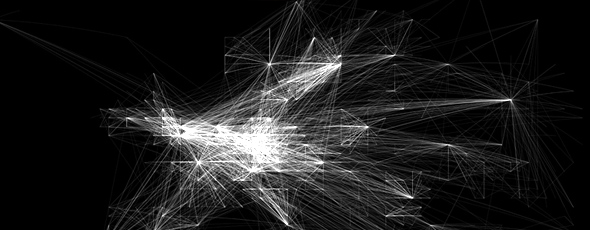
Community
The digital commons is about freedom, sharing, and creating community. Since the advent of the Internet, the concept of community has been less geographical: people gather to share common concerns regardless of physical location, although geographical concerns are certainly one reason why people come together. The word “community” is derived from the Latin ‘communitas’, a broad term for fellowship or organized society. The digital commons is about a fellowship of information, about organising society around informational concerns.
Proceeding with other commoning concerns in the information age without founding things explicitly and decisively in the digital commons, is inherently self-limiting. Anyone who cares about community and commoning should make a special effort to base what they are doing on the digital commons.
Economics
Information is naturally a public good, and non-rivalrous in its consumption (my consumption does not diminish your consumption). The key distinction between informational goods and conventional commodities is that the aggregation function changes from the sum of the set to the max of the set. So if you have six identical chairs, then you have six chairs’ worth of goods. But if you have six identical copies of some information, then you have one copy’s worth. This means that the way to make more value is to do something new, which isn’t necessarily easy when the web is world wide. The hard core of the digital commons is the free software community, which is about making software source codes that are freely available. When information is organised as a public good, the surplus value of code (to use a phrase from Deleuze and Guattari’s book, Anti-Oedipus) is realised for the common good.
However, even though information is naturally a public good, it is often organised as a private good, with end-user license agreements, digital rights management, and a whole broken and despotic world of secrets. Free software engineers are the rebel army in the information revolution. They are battling against the Dark Side: corporations such as Apple, Microsoft, Facebook and many others who are attempting to capture the surplus value of code for private gain and social control. In their bid for world domination, these corporations are happy to destroy 90% of the value in order to monopolise the remaining 10%. In George Lucas’s Star Wars films, Luke Skywalker is encouraged to use the Force (‘’It surrounds us and penetrates us. It binds the galaxy together.’’) Likewise, the free software community encourages you to use the Source.
Engineering
Because free software codes are shared, people are looking to use other people’s codes in their own work, so that they only have to code directly for the concerns they are addressing, rather than having to make all the pieces themselves. This leads to much better designs. And because the source codes are available, the opportunity exists to make enhancements and fix errors in other people’s codes. This has driven a much more community-minded practice, compared to the often miserable situations and terrible software that can be found in corporations such as banks.
Law
The digital commons is based on a legal hack to convert copyright law into something called copyleft. The movement started with free software, in particular the GNU General Public License (GPL). Originally written by Richard Stallman and released in 1982, the GPL is the first and the most widely used copyleft license. According to the copyleft philosophy, the GPL grants the recipients of a computer program the rights described in the free software definition and ensures certain freedoms are preserved, even when the work is changed or added to. GPL provides four freedoms: to use, to study, to change, to distribute. GPL has been tested in court and is an enforceable and binding license. This corresponds to some extent with Elinor Ostrom’s principles for managing a commons: if you use free software to make something and distribute your work without making everything available then your license is revoked.
In summary the digital commons is about making an ethical imperative of freedom, promoting social solidarity and sharing, making ever-expanding community where technically superior solutions are available to all and forever, often without a charge. This approach has been promoted as “open source”, and the principles of freedom and of sharing have been adopted for other kinds of works, most notably with the Creative Commons licenses, and by the open data movement. Everybody involved with commoning is encouraged to familiarise with, and base their other work upon the digital commons.
This article is based on a talk given at the Reclaiming the Commons seminar in November 2012, organised by the School of Commoning. This article is licensed under the Creative Commons Attribution-No Derivative Works 3.0. To view a copy of this license, visit http://creativecommons.org/licenses/by-nd/3.0/
By John Bywater









